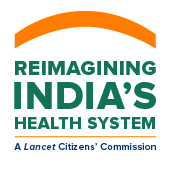In Conversation: Yamini Aiyar, President and Chief Executive, Centre for Policy Research
Feb 18, 2022

My research sits at the intersection of issues related to governance, state capacity, federalism and social policy. I have a particular interest in trying to understand how organisational systems work and what are appropriate levers of change. Too often debates on reforms focus on either technocratic change and governance, to the extent that it features, its discussed only in the framework of disciplining errant officials through laws, through tighter monitoring and through new regulatory structures. Rarely do we engage with the question of the organizational system – its rules, its norms, its culture, degrees of citizen engagement – that together shape outcomes. I am interested in unpacking these aspects of governance and state capacity because I believe this lies at the heart of the question of what makes for high performing vs low performing public institutions. In the specific context of India, it is a widely accepted truth that our primary governance challenge stems from the fact that our public institutions are caught in low capability traps. Yet we struggle with identifying appropriate pathways for breaking these traps. My research is an attempt to shift the discourse away from the current framework of “governance” as merely a challenge of changing the rules towards a deeper understanding of governance as a challenge of organisational systems.
My interest in healthcare and health systems stems from the intersection of my interest in social policy (I simply do not believe India can become a 5 trillion $ economy without investing in human capital. It is a moral imperative for a democracy and makes good economic sense too) and my interest in reimagining governance. The pandemic has brought to the fore the underlying structural weaknesses in our health system and the visible lack of trust in the capacity of the health system to respond to emerging challenges. Responding to these requires both investing in both the technocratic dimensions of approaches to delivering equitable health care but also ensuring appropriate governance systems that will support these delivery mechanisms. This what my work in the lancet commission is about.
My role in the commission is steer a deeper understanding of the challenge of governance and more importantly arrive through collective deliberation at a set of policy prescriptions that are implementable, that respond to the realities of the political economy and above all that can shift the status quo toward building high performing organisations.
There are several challenges but for me at the heart of this is arriving at a consensus on the normative role of the State in health care ( should the state be in the business of regulation and financing through managed care or actual provision of health. Should the emphasis be on tertiary care or primary care) combined with a rebuilding of trust in the capacity of the state to deliver quality care. I think these are still deeply contentious issues within our politics. I believe the commission is deeply committed to strengthening the public health system and in all its dimensions but there is a larger political and social consensus that needs to be built on this. Underlying this is the issue of governance. Part of the reason the normative role of the State in providing health is up for debate is precisely because of repeated, long term faliure of governance and the State’s ability to delivery quality, equitable care to all. Rebuilding governance capacity, which frankly is at the heart of the challenge of UHC, is critical.
Commissions come and go. But what distinguishes this from others is both its diversity (of ideas, of stakeholders) and its commitment to being participatory and building a public discourse. If the commission can prise open a space for an evidence based, sober and nuanced conversation on the challanges of health and rebuild citizen trust and commitment to the importance of UHC, it will have done its job.
